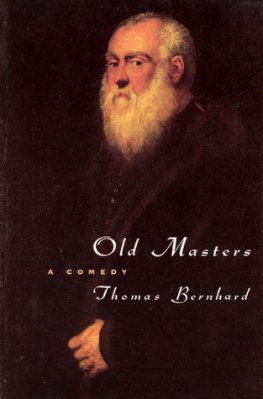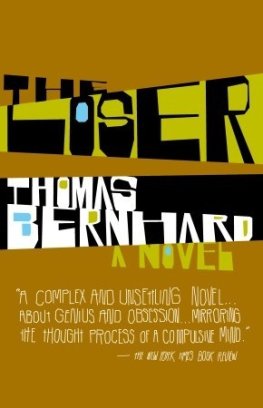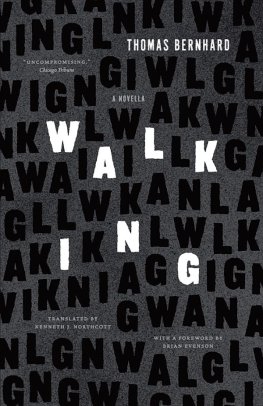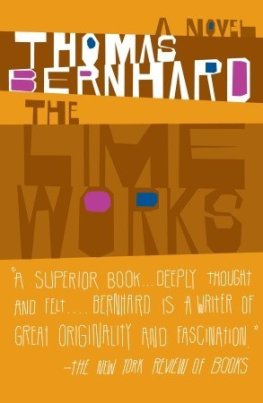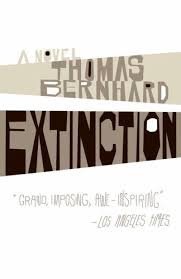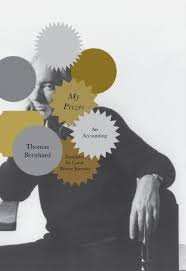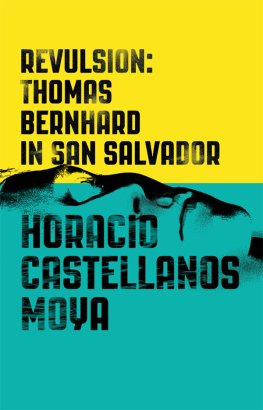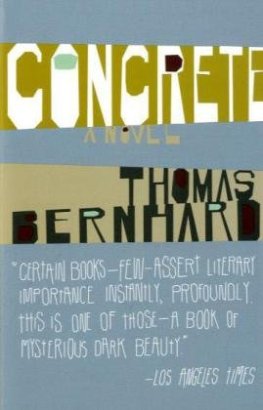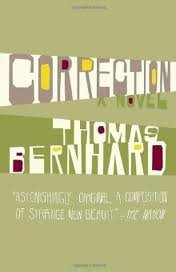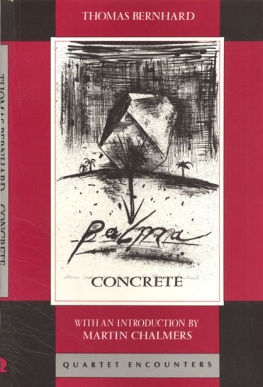Thomas Bernhard - The Loser: A Novel
Here you can read online Thomas Bernhard - The Loser: A Novel full text of the book (entire story) in english for free. Download pdf and epub, get meaning, cover and reviews about this ebook. year: 1991, publisher: Vintage, genre: Detective and thriller. Description of the work, (preface) as well as reviews are available. Best literature library LitArk.com created for fans of good reading and offers a wide selection of genres:
Romance novel
Science fiction
Adventure
Detective
Science
History
Home and family
Prose
Art
Politics
Computer
Non-fiction
Religion
Business
Children
Humor
Choose a favorite category and find really read worthwhile books. Enjoy immersion in the world of imagination, feel the emotions of the characters or learn something new for yourself, make an fascinating discovery.

- Book:The Loser: A Novel
- Author:
- Publisher:Vintage
- Genre:
- Year:1991
- Rating:5 / 5
- Favourites:Add to favourites
- Your mark:
- 100
- 1
- 2
- 3
- 4
- 5
The Loser: A Novel: summary, description and annotation
We offer to read an annotation, description, summary or preface (depends on what the author of the book "The Loser: A Novel" wrote himself). If you haven't found the necessary information about the book — write in the comments, we will try to find it.
The Loser: A Novel — read online for free the complete book (whole text) full work
Below is the text of the book, divided by pages. System saving the place of the last page read, allows you to conveniently read the book "The Loser: A Novel" online for free, without having to search again every time where you left off. Put a bookmark, and you can go to the page where you finished reading at any time.
Font size:
Interval:
Bookmark:

THOMAS BERNHARD
Thomas Bernhard was born in Holland in 1931 and grew up in Austria. He studied music at the Akademie Mozarteum in Salzburg. In 1957 he began a second career as a playwright, poet, and novelist. The winner of the three most distinguished and coveted literary prizes awarded in Germany, he has become one of the most widely translated and admired writers of his generation. He published nine novels, an autobiography, one volume of poetry, four collections of short stories, and six volumes of plays. Thomas Bernhard died in Austria in 1989.
Books by Thomas Bernhard
Concrete Correction
Frost
Extinction
Gargoyles
Gathering Evidence
The Lime Works
The Loser
My Prizes
Wittgensteins Nephew
Woodcutters
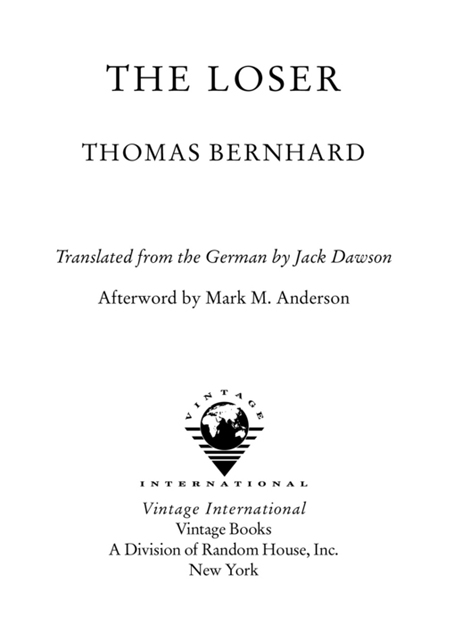

FIRST VINTAGE INTERNATIONAL EDITION, OCTOBER 2006
Copyright 1991 by Alfred A. Knopf, a division of Random House, Inc.
All rights reserved. Published in the United States by Vintage Books, a division of Random House, Inc., New York, and in Canada by Random House of Canada Limited, Toronto. Originally published in German as Der Untergeher by Suhrkamp Verlag, Frankfurt.
Copyright 1983 by Suhrkamp Verlag, Frankfurt am Main.
This translation originally published by
Alfred A. Knopf, Inc., New York, in 1991.
Vintage is a registered trademark and Vintage International and colophon
are trademarks of Random House, Inc.
This is a work of fiction. Names, characters, places, and incidents either
are the product of the authors imagination or are used fictitiously.
The Library of Congress has cataloged the Knopf edition as follows:
Bernhard, Thomas.
[Untergeher. English]
The loser / Thomas Bernhard ; translated from the German by
Jack Dawson ; afterword by Mark M. Anderson. 1st American ed.
p. cm.
1. Gould, GlennFiction. 2. PianistsFiction. 3. CanadaFiction.
I. Title.
PT2662.E7 U5513 1991
833.914dc20 90045942
eISBN: 978-0-307-77346-3
www.vintagebooks.com
v3.1
For English-speaking readers approaching a novel by Thomas Bernhard for the first time, a word about his somewhat peculiar orthography and punctuation may be in order. Bernhards sentences are very long, even for a German reader accustomed to extended, complex sentence constructions. Further, the logical transitions between clauses (but, although, whereas) are often missing or contradictory, and the verb tenses are rarely in agreement. Bernhards frequent and unpredictable underlining also defies conventional usage. Sometimes he italicizes the title of Bachs compositions, sometimes he treats them like a common noun. On the other hand, he often gives the names of restaurants, towns, pianos, and people an emphasis that conventional German and English orthography exclude. These and similar oddities have been rigorously maintained in the present translation as the reflection of Bernhards characteristic voice.
J.D.
Suicide calculated well in advance, I thought, no spontaneous act of desperation.
Even Glenn Gould, our friend and the most important piano virtuoso of the century, only made it to the age of fifty-one, I thought to myself as I entered the inn.
Now of course he didnt kill himself like Wertheimer, but died, as they say, a natural death.
Four and a half months in New York and always the Goldberg Variations and the Art of the Fugue, four and a half months of Klavierexerzitien, as Glenn Gould always said only in German, I thought.
Exactly twenty-eight years ago we had lived in Leopoldskron and studied with Horowitz and we (at least Wertheimer and I, but of course not Glenn Gould) learned more from Horowitz during a completely rain-drenched summer than during eight previous years at the Mozarteum and the Vienna Academy. Horowitz rendered all our professors null and void. But these dreadful teachers had been necessary to understand Horowitz. For two and a half months it rained without stopping and we locked ourselves in our rooms in Leopoldskron and worked day and night, insomnia (Glenn Goulds) had become a necessary state for us, during the night we worked through what Horowitz had taught us the day before. We ate almost nothing and the whole time never had the backaches we habitually suffered from with our former teachers; with Horowitz the backaches disappeared because we were studying so intensely they couldnt appear. Once our course with Horowitz was over it was clear that Glenn was already a better piano player than Horowitz himself, and from that moment on Glenn was the most important piano virtuoso in the world for me, no matter how many piano players I heard from that moment on, none of them played like Glenn, even Rubinstein, whom Ive always loved, wasnt better. Wertheimer and I were equally good, even Wertheimer always said, Glenn is the best, even if we didnt yet dare to say that he was the best player of the century. When Glenn went back to Canada we had actually lost ourCanadian friend, we didnt think wed ever see him again, he was so possessed by his art that we had to assume he couldnt continue in that state for very long and would soon die. But two years after wed studied together under Horowitz Glenn came to the Salzburg Festival to play the Goldberg Variations, which two years previously he had practiced with us day and night at the Mozarteum and had rehearsed again and again. After the concert the papers wrote that no pianist had ever played the Goldberg Variations so artistically, that is, after his Salzburg concert they wrote what we had already claimed and known two years previously. We had agreed to meet with Glenn after his concert at the Ganshof in Maxglan, an old inn I particularly like. We drank water and didnt say a thing. At this reunion I told Glenn straight off that Wertheimer (who had come to Salzburg from Vienna) and I hadnt believed for a minute we would ever see him, Glenn, again, we were constantly plagued by the thought that Glenn would destroy himself after returning to Canada from Salzburg, destroy himself with his music obsession, with his piano radicalism. I actually said the words piano radicalism to him. My piano radicalism, Glenn always said afterward, and I know that he always used this expression, even in Canada and in America. Even then, almost thirty years before his death, Glenn never loved any composer more than Bach, Handel was his second favorite, he despised Beethoven, even Mozart was no longer the composer I loved above all others when he spoke about him, I thought, as I entered the inn. Glenn never played a single note without humming, I thought, no other piano player ever had that habit. He spoke of his lung disease as if it were his second art. That we had the same illness at the same time and then always came down with it again, I thought, and in the end even Wertheimer got our illness. But Glenn didnt die from this lung disease, I thought. He was killed by the impasse he had played himself into for almost forty years, I thought. He never gave up the piano, I thought, of course not, whereas Wertheimer and I gave up the piano because we never attained the inhuman state that Glenn attained, who by the way never escaped this inhuman state, who didnt even want to escape this inhuman state. Wertheimer had his
Font size:
Interval:
Bookmark:
Similar books «The Loser: A Novel»
Look at similar books to The Loser: A Novel. We have selected literature similar in name and meaning in the hope of providing readers with more options to find new, interesting, not yet read works.
Discussion, reviews of the book The Loser: A Novel and just readers' own opinions. Leave your comments, write what you think about the work, its meaning or the main characters. Specify what exactly you liked and what you didn't like, and why you think so.

